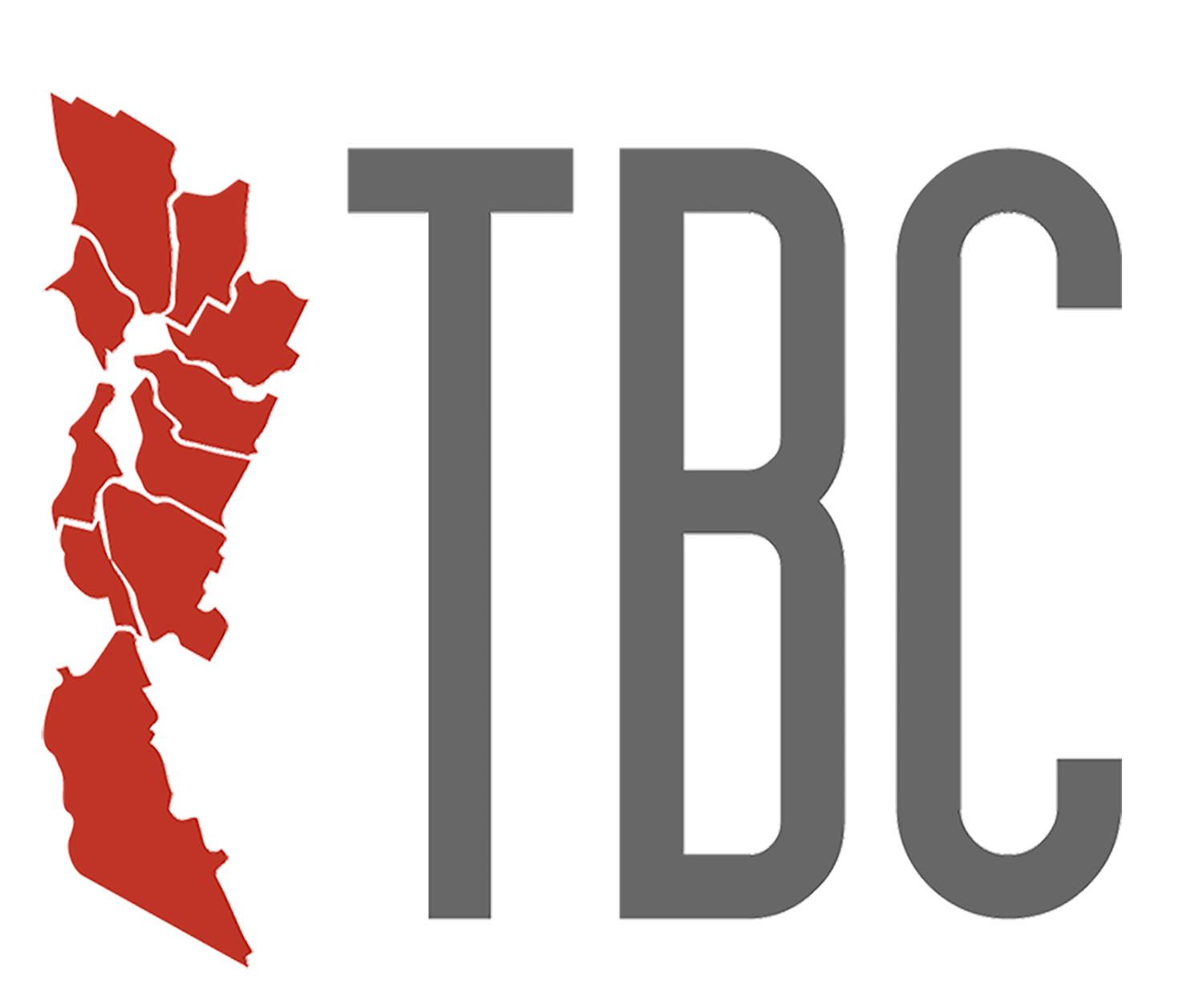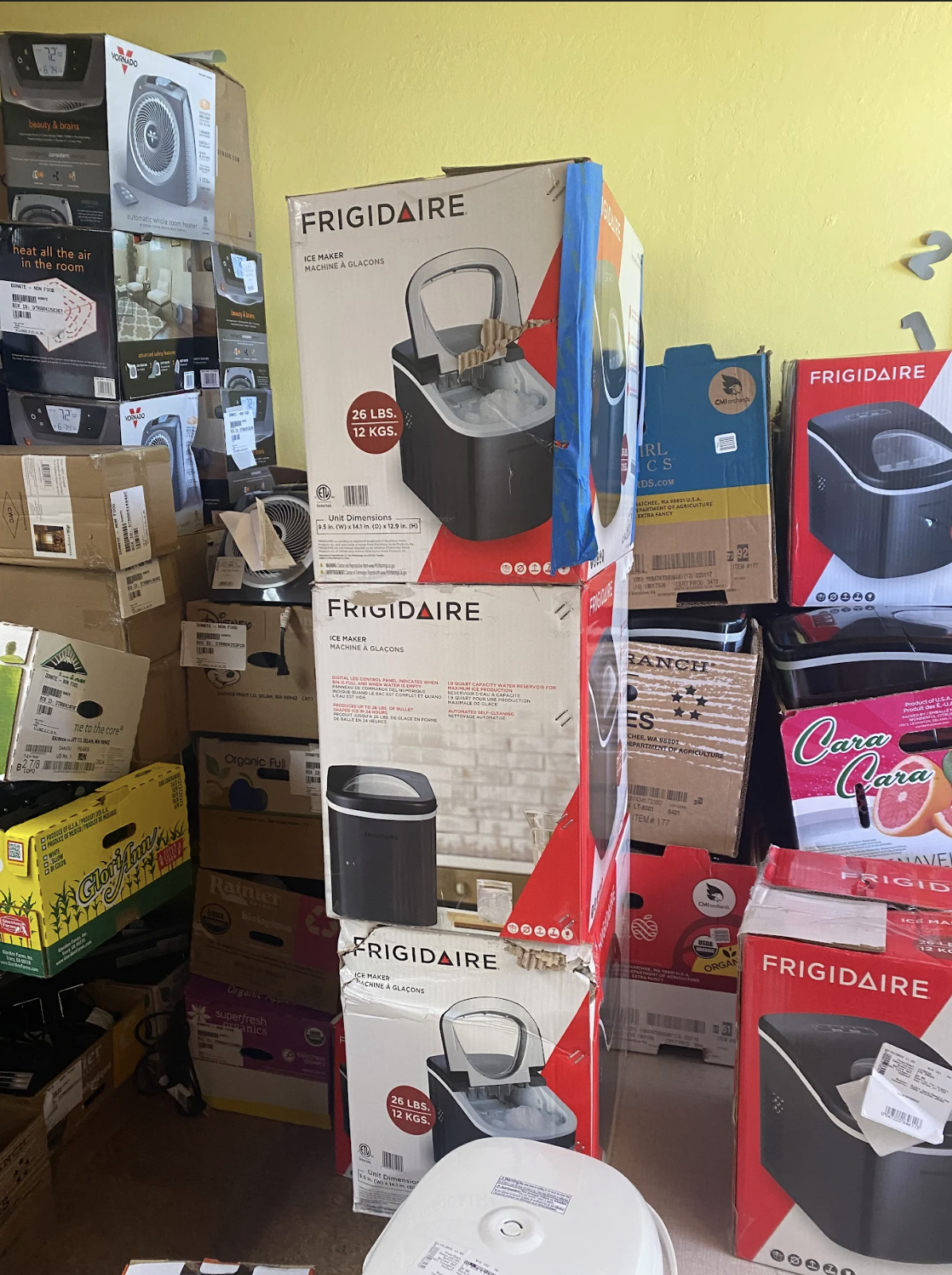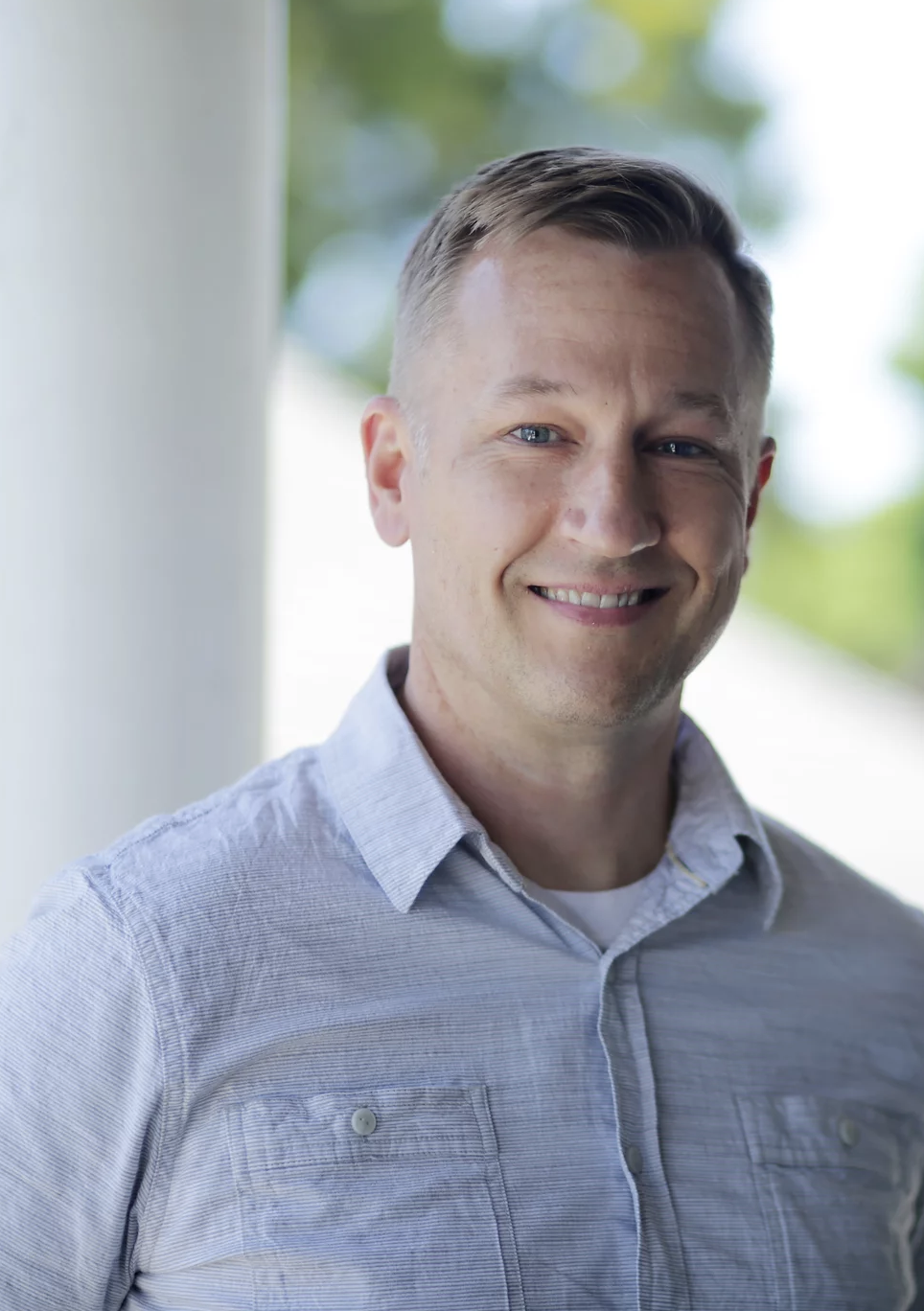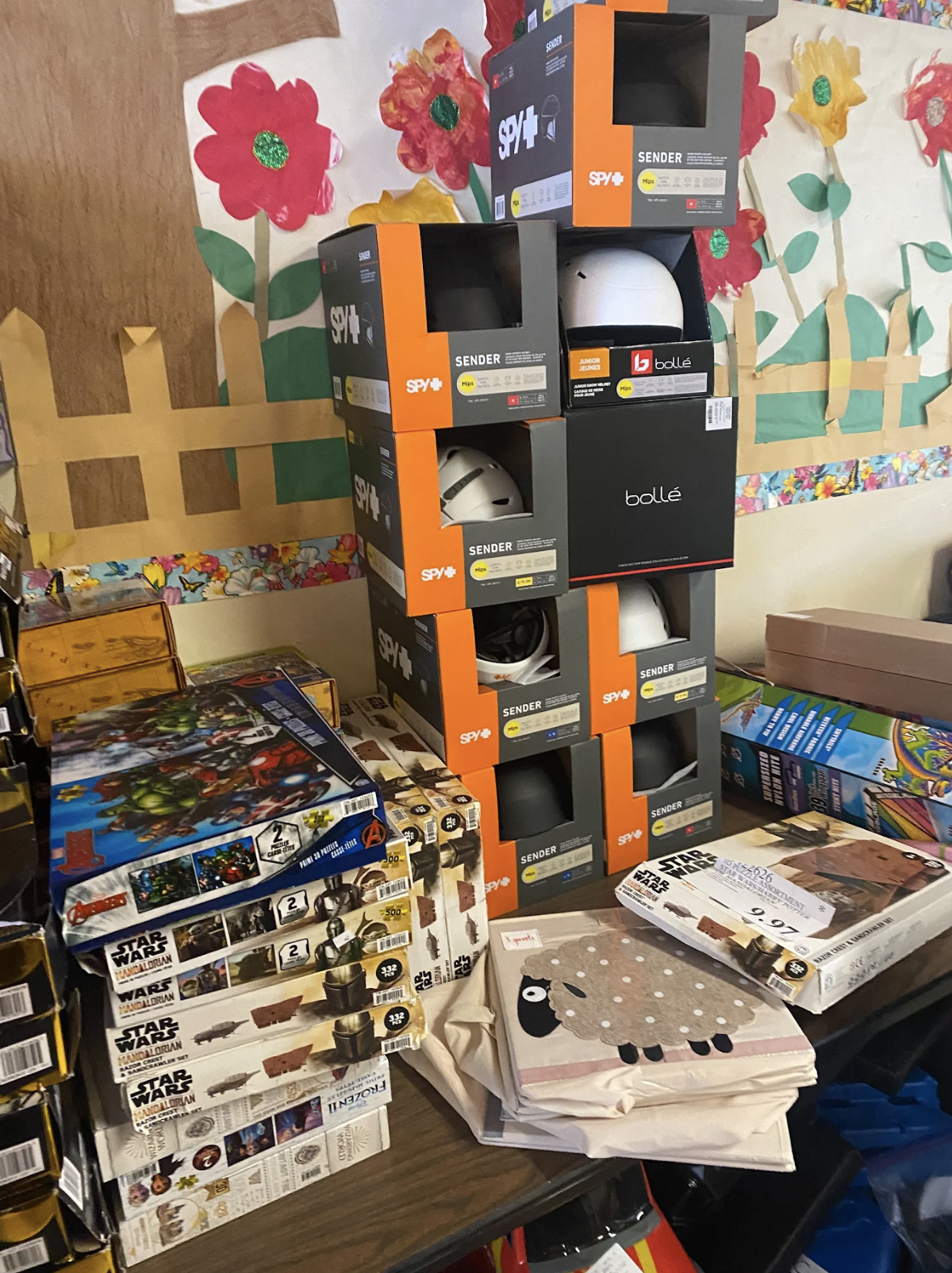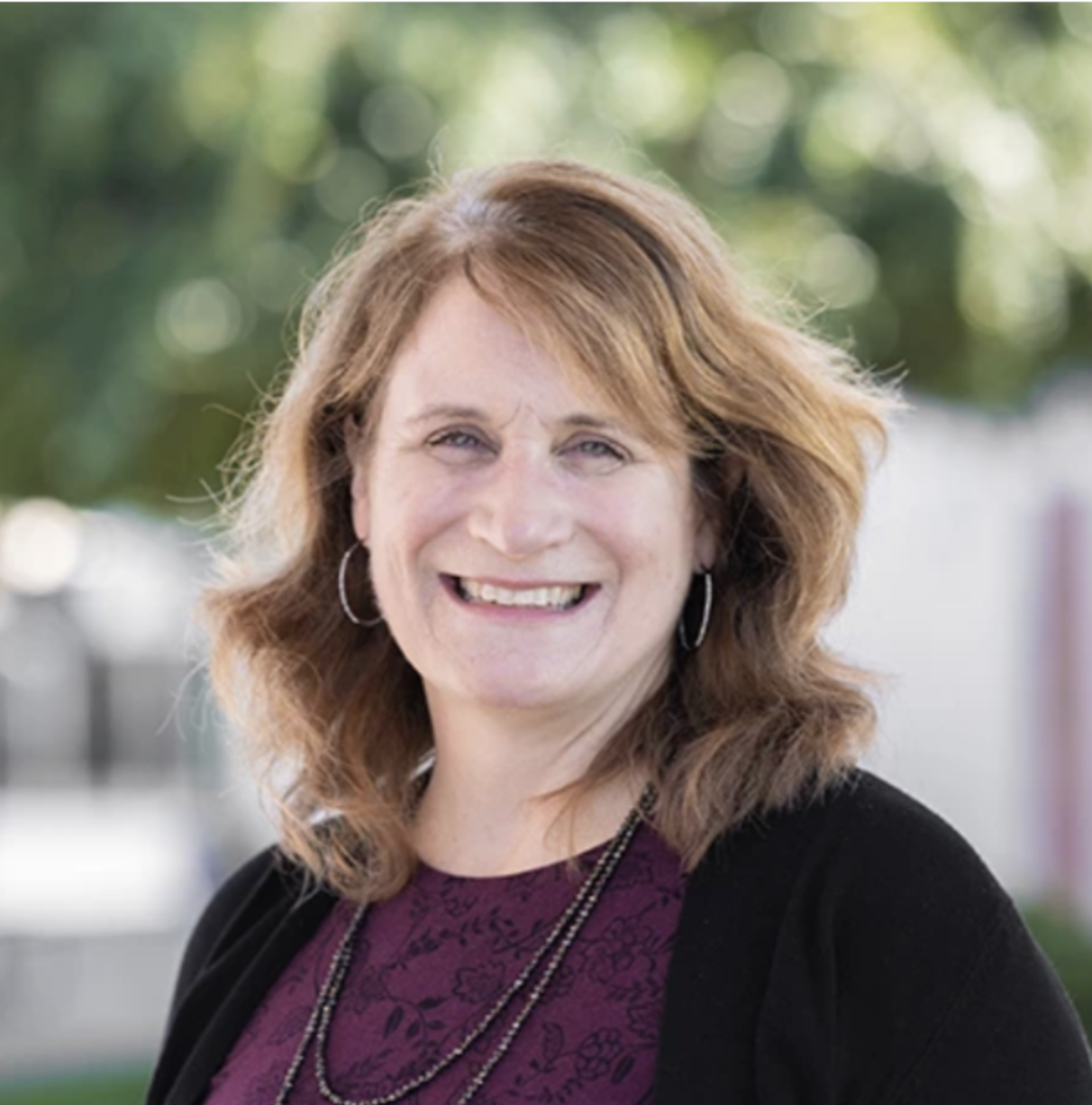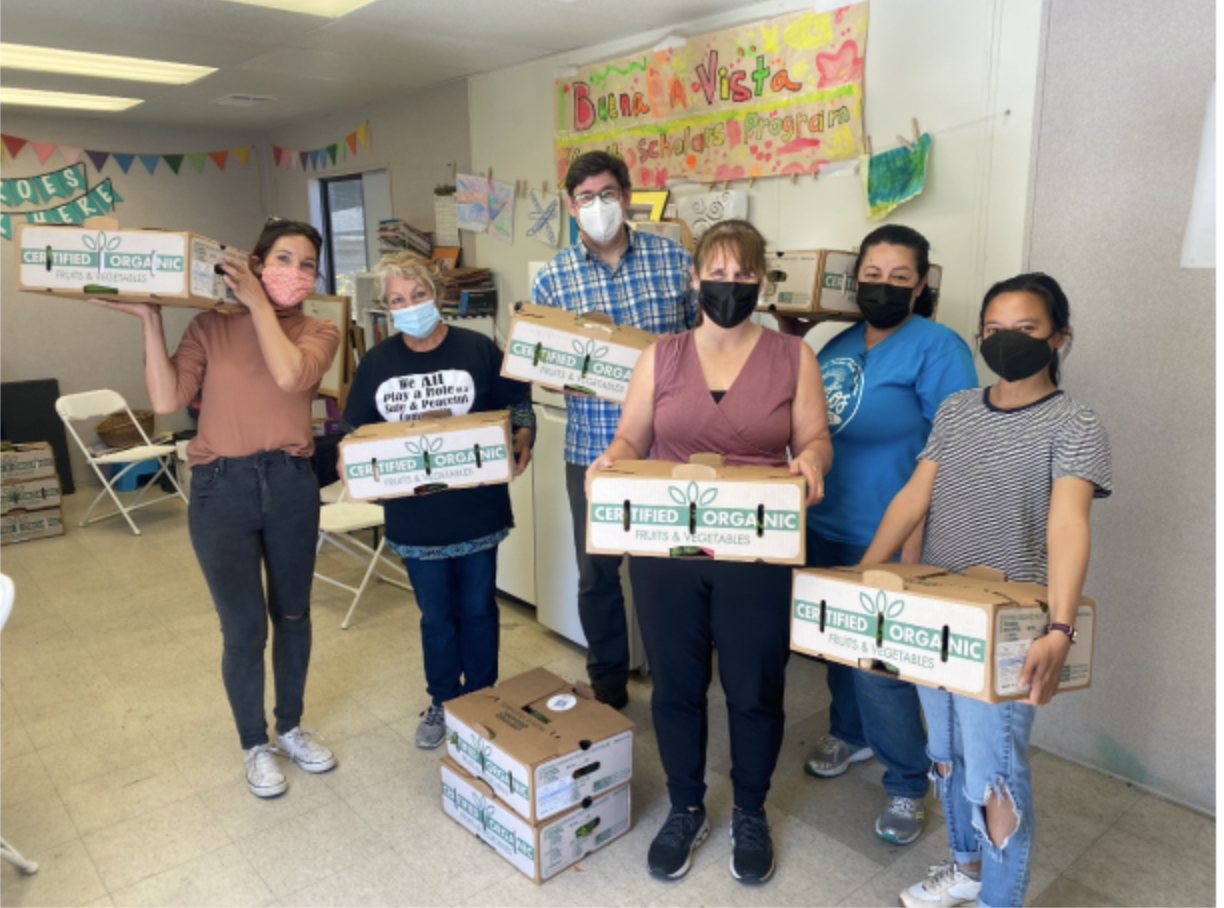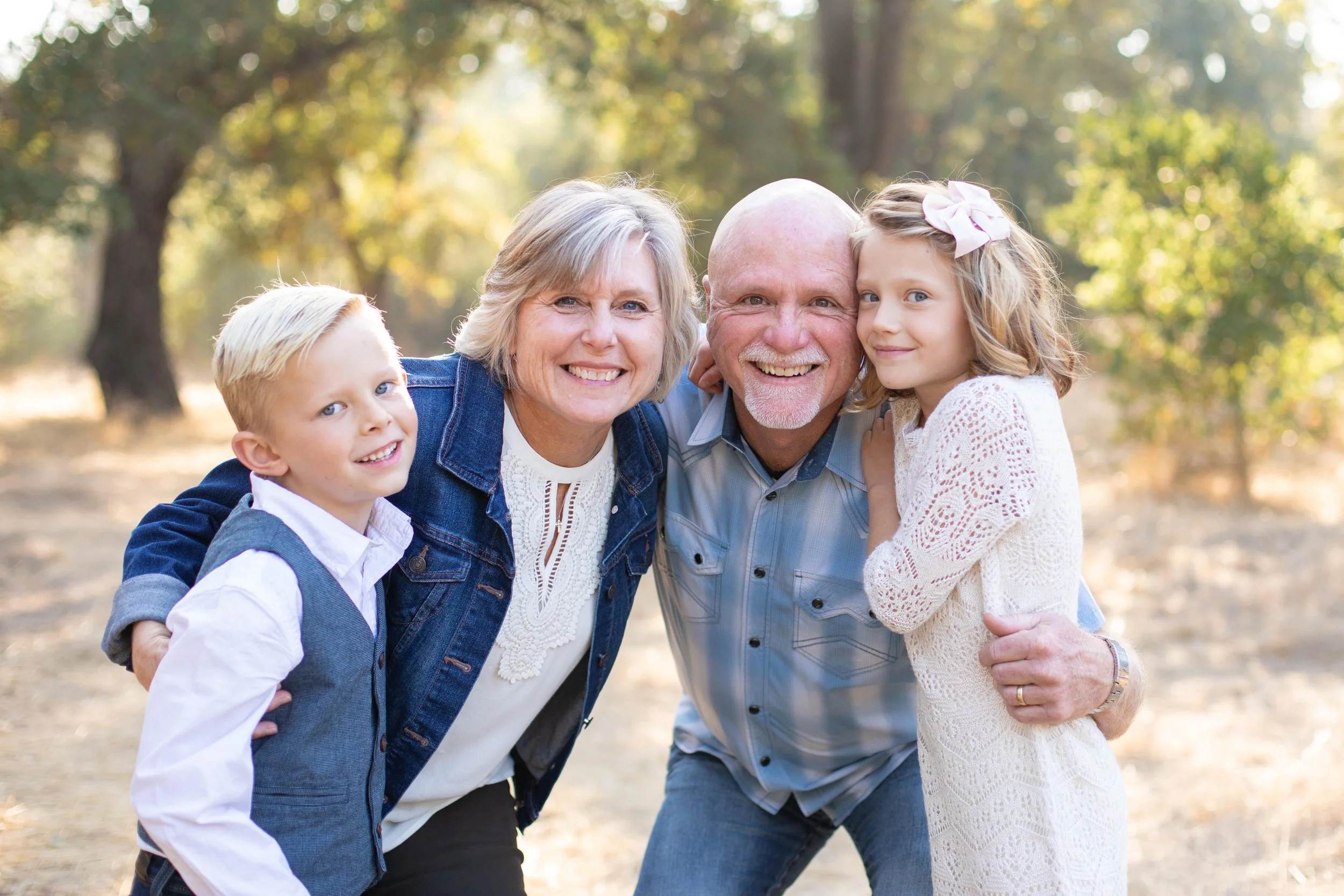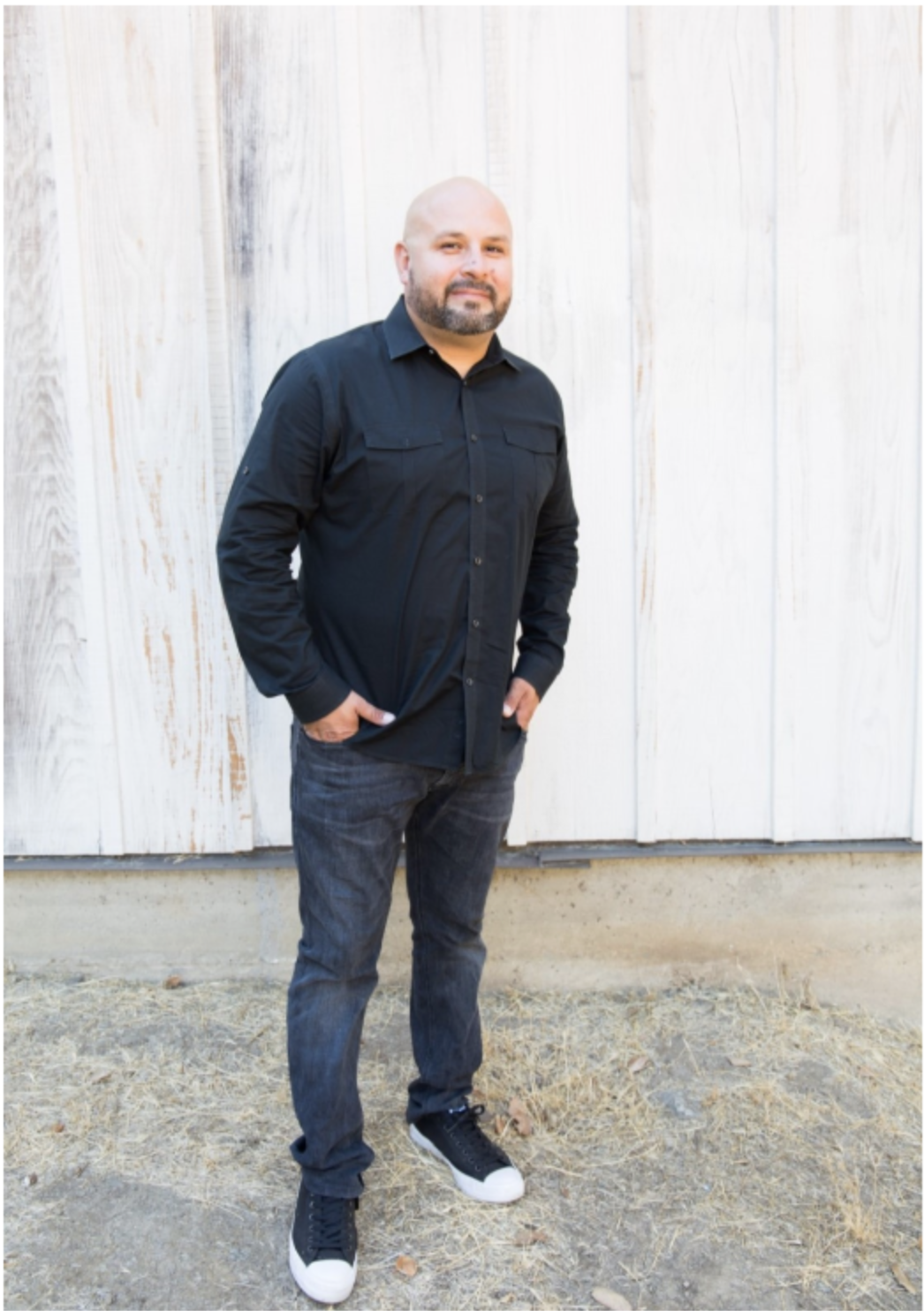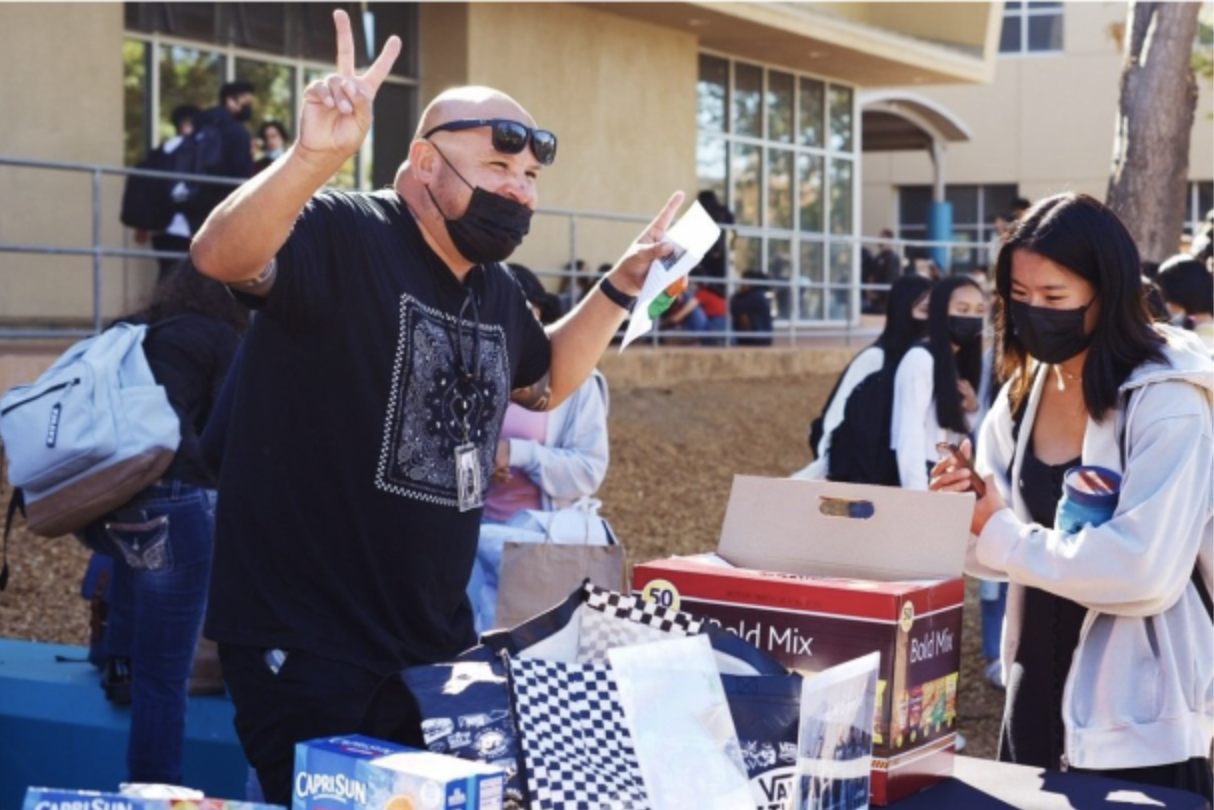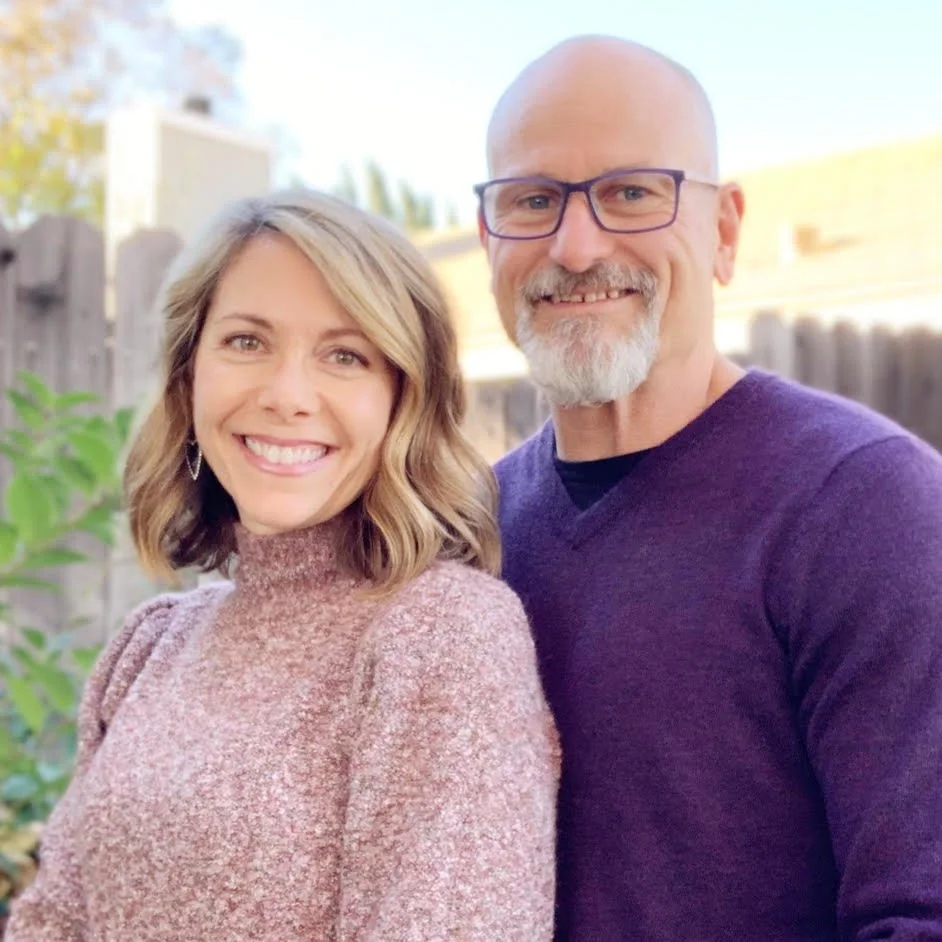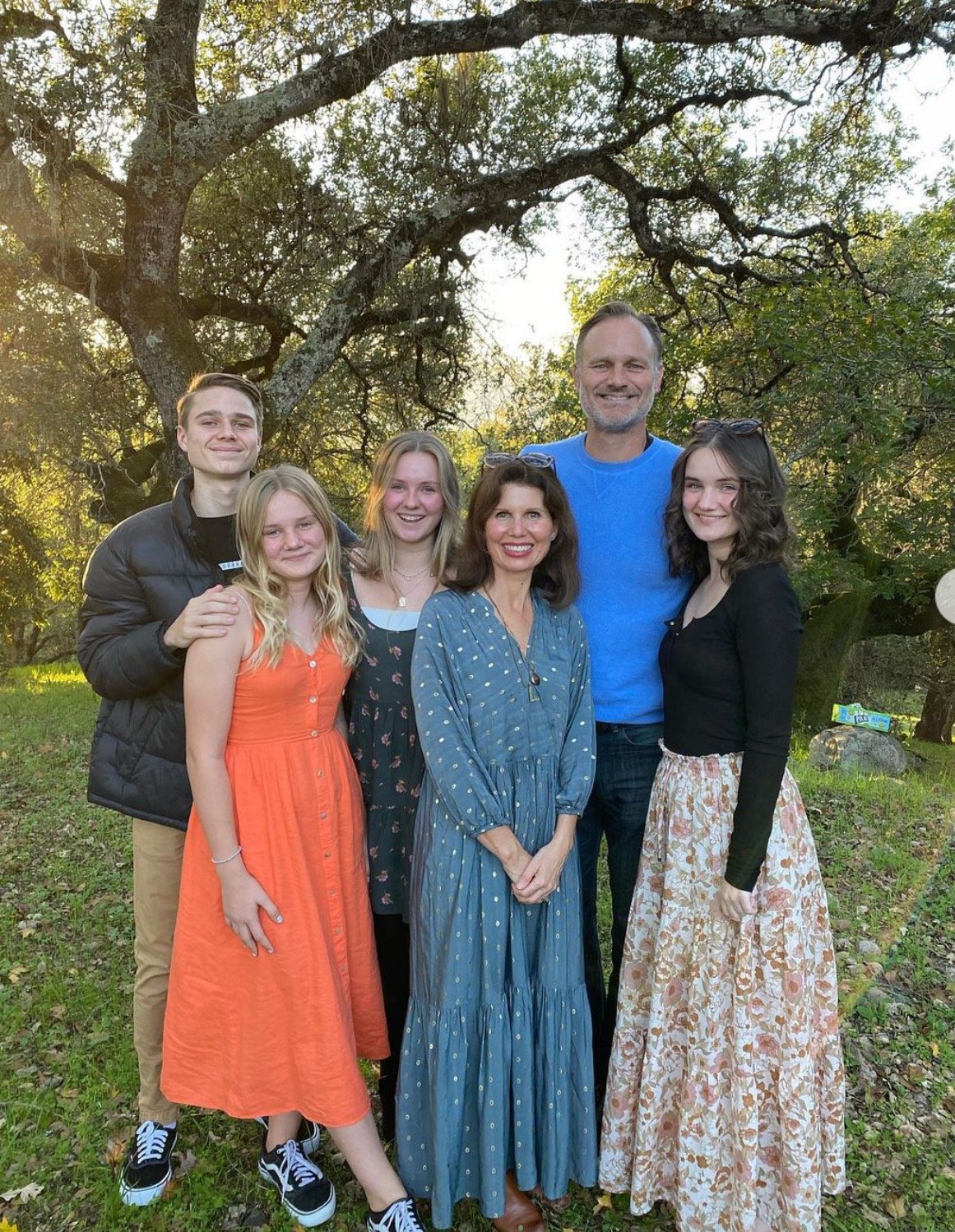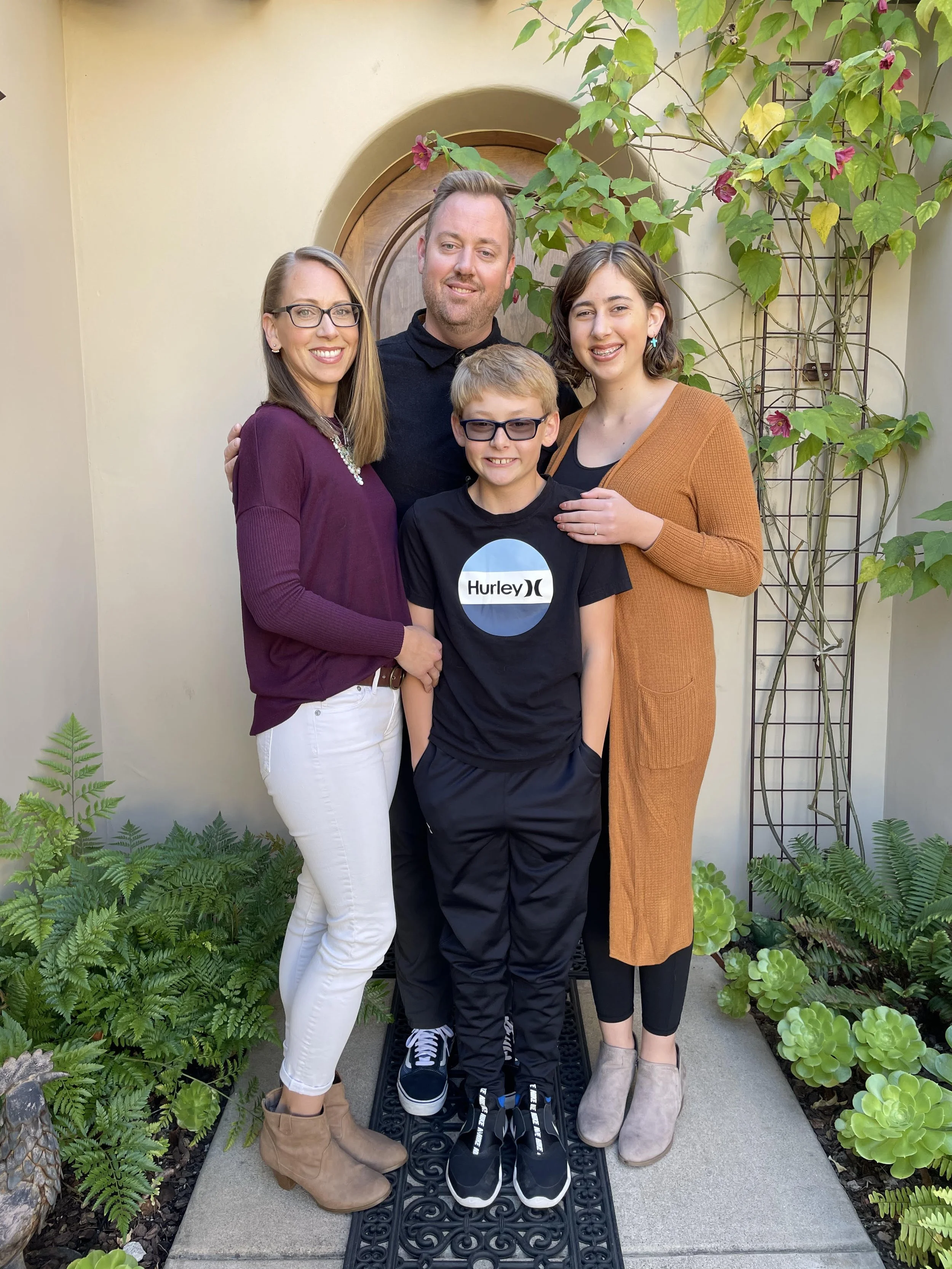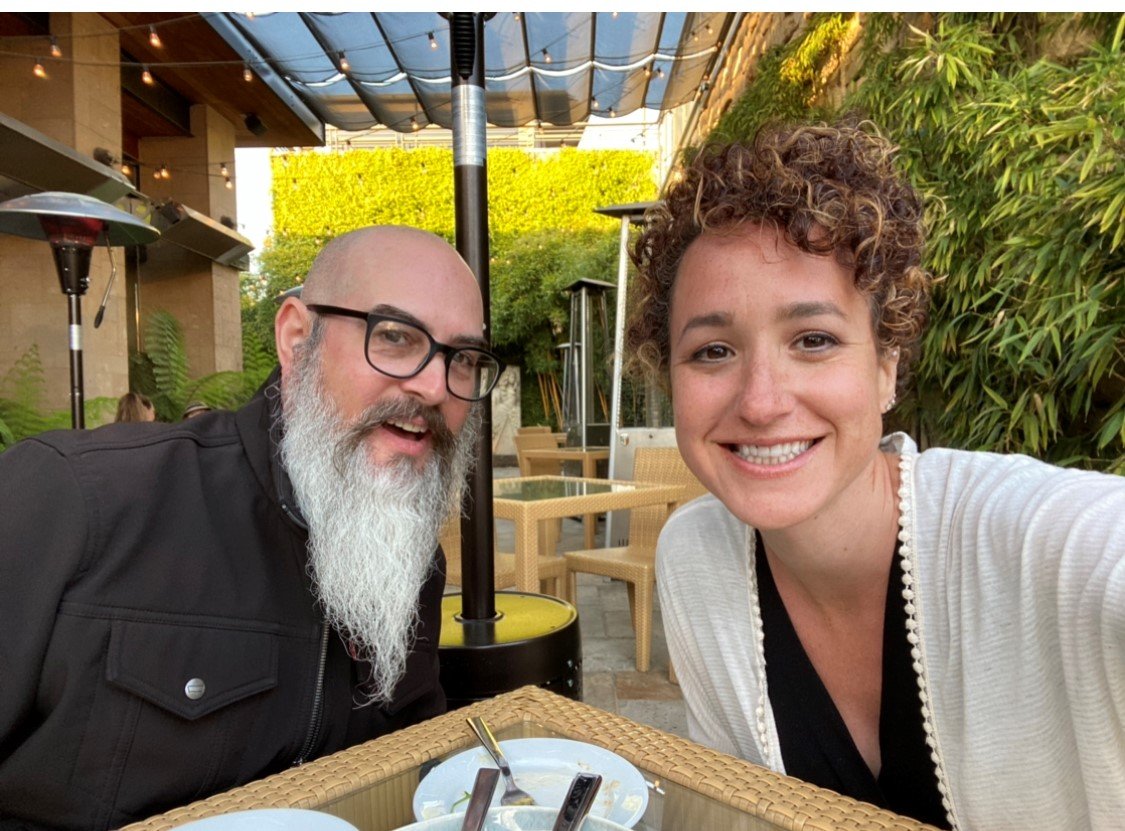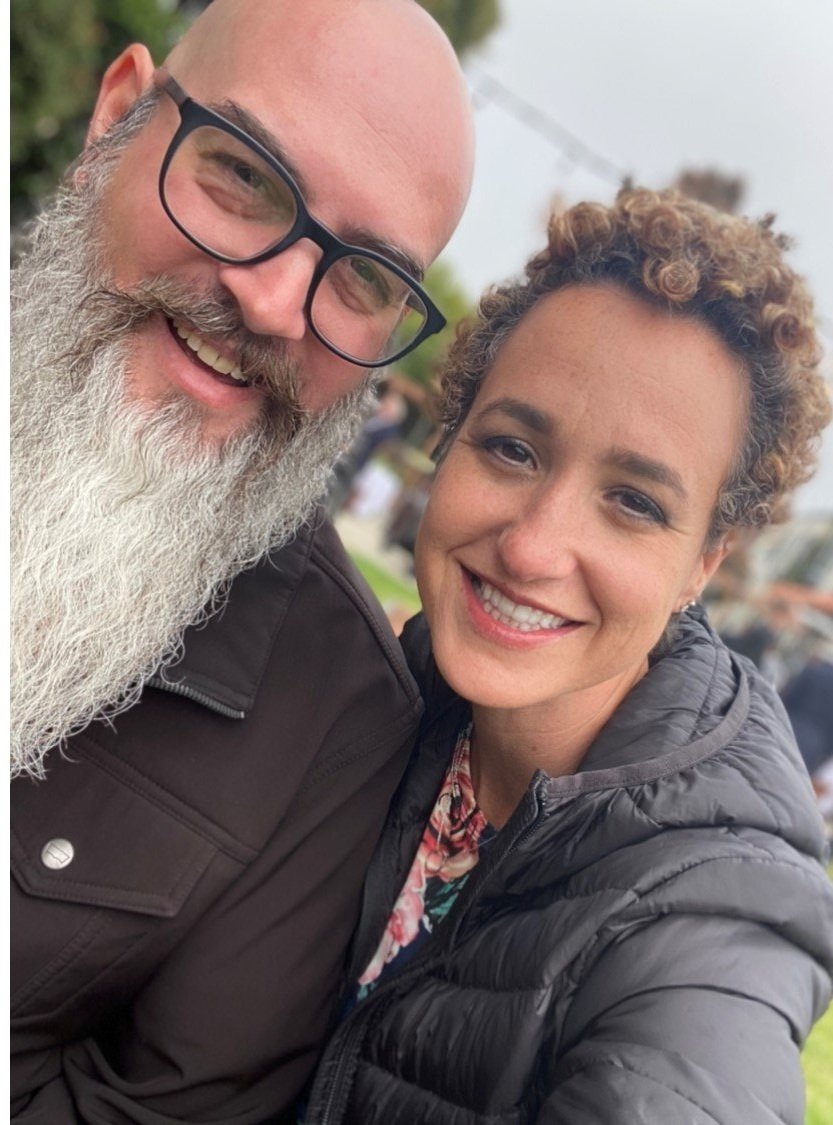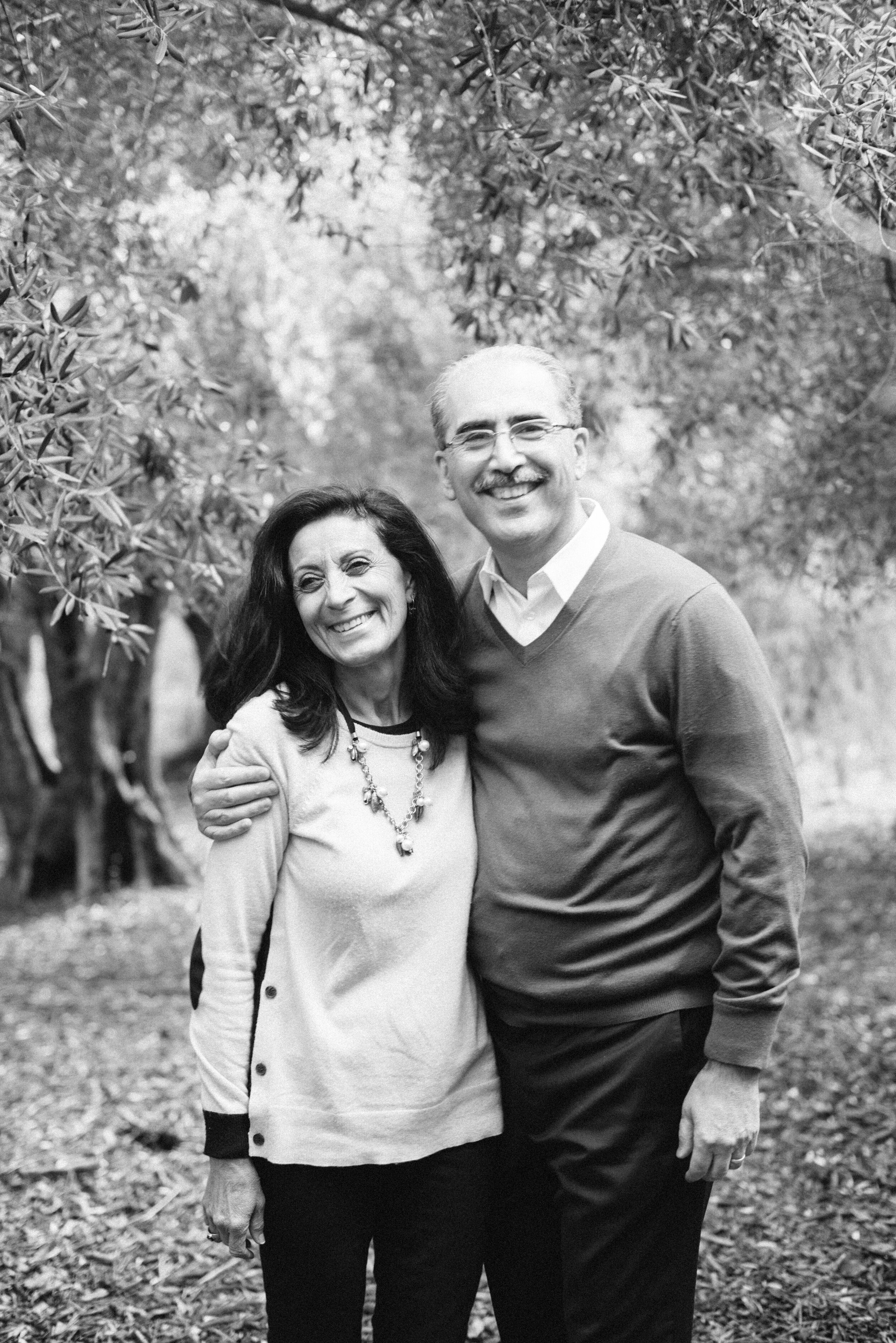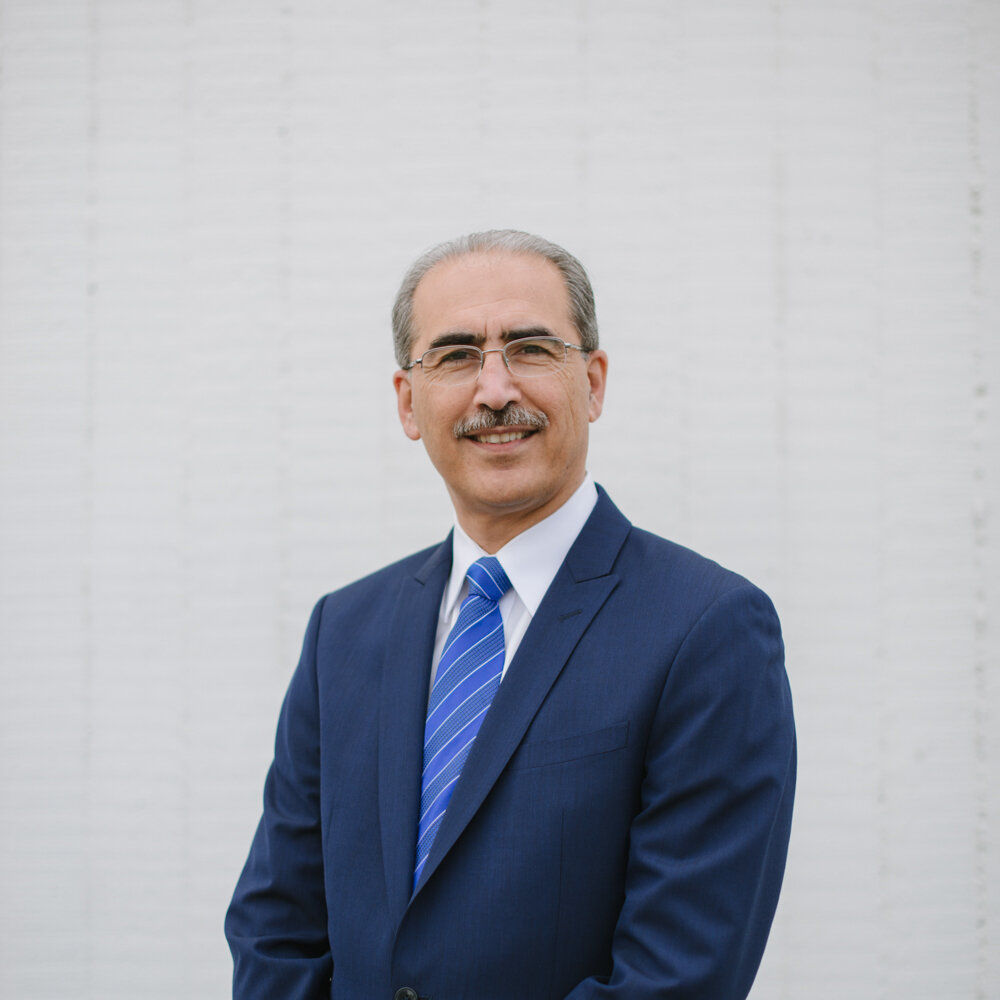Spotlight: Johnny Huddle: Finding purpose in repurpose
When the First Church of the Nazarene on Gading Road in Hayward stopped meeting in 2020, the denomination’s Northern California District considered liquidating the property. They enlisted realtor Dominic Dutra to handle the sale. Dutra, author of Closing Costs, a new book about repurposing church property, negotiated a complicated swap with a Korean church in downtown Oakland that gave the Korean congregation a different property with a large parking lot and the Church of the Nazarene a presence in Oakland they had not enjoyed since 1969. The Gading Road property remained in the hands of the NorCal District.
Just a short time earlier Johnny and Amanda Huddle were called to move from Los Angeles to Oakland to plant the urban church on 42nd Street in Oakland. They were joined by three other couples who made the trek north. The NorCal District told them they could do whatever they wanted with the building on Gading Road. “The English-speaking congregation had closed, but there were three other groups still meeting in the church – a Samoan language congregation, a Hindi language congregation, and a Spanish language congregation,” Johnny recalls. “These three congregations were strong. They were beautiful expressions of the Body.”
Johnny wanted to see these three churches continue. They use the sanctuary for services, but he had another vision for the rest of the property as he explains, “From an organizational standpoint I wanted to do things a little differently from normal Church of the Nazarene polity. I pitched starting a nonprofit as an expression of developing a real investment in the community.”
In His Image
He named the ministry EIKON, which means in His image; “The idea of EIKON is that we just want to become more like Jesus.”
The ministry’s first initiative was Infinite Christmas, a missional movement unified around a single imperative as Johnny explains, “Infinite Christmas is God becoming flesh and moving into the neighborhoods through active generosity. It’s mobilizing our people and getting us out into the community.
Infinite Christmas, which derives its name from its kick-off date of December 23, 2020, unites church members and the larger community by distributing household items to those in need. Donated goods which are all brand new and include furniture, appliances, and non-perishable food are stored at Gading Road. Johnny says, “I thought Infinite Christmas would be the last thing we’d do. It was the first. I know it was God because He wanted us to build this network of relationships and partnerships that give us the opportunity to participate in a small way in the work other nonprofits and churches are doing as they serve vulnerable people at the point of need.”
Last year Infinite Christmas touched 18,000 unique individuals through forty points of distribution, known as PODS, churches and nonprofits that are EIKON partners.
Building community
Johnny has yet another vision for the Gading Road property – a tiny homes community. “We are partnering with the City of Hayward and with Cal State East Bay to provide tiny homes that will serve unsheltered or shelter-unstable college students. One in 8 Cal State East Bay students are shelter-unstable. The tiny homes will stabilize them and get them set up so they can then transition into more permanent housing.”
Construction is scheduled to begin in November.
“It’s a weird thing to plant a church. We listened when the Holy Spirit spoke to us saying we needed to be armed with ignorance. We’re listening to the community – learning what people are facing. There’s a hunger here in the East Bay to love our neighbor, a hunger here to be empowering, and to serve one another. We feel right at home here.”
Spotlight: Palo Alto Vineyard: Fulfilling a mission of compassion
Palo Alto Vineyard Church has a long history of supporting its local and global community organically. Their list of ministry and outreach partners numbered more than twenty-one, yet according to Director of Compassion, Julie Young, there was no focus as a church on how to serve; “people were spread out and there was really no sense of unity as a church in what we were doing.”
To address this, lead pastor, Susan Van Riesen asked the church’s Missions Board to find a focus. They met and prayed together until God revealed His plan. “We spent a whole year asking God where He wanted us to put our time and attention,” Julie recalls.
This process of discernment ultimately revealed four guiding mandates for the church’s missional effort:
Volunteerism
Prayer
Education
Relationship
These would be impossible with all 21 named partners, so the Board decided to commit to three that were local: Hope Horizon East Palo Alto, Correctional Institutions Chaplaincy (CIC) of Santa Clara County, and Reach Potential Movement.
A mission of compassion
It was at this time that the Missions Board also decided to change its name. “During the pandemic our church took a deep dive into all things related to justice and a lot of us realized the word, missions, no longer really fit what we were doing,” Julie explains. “When we consider that word today, it is often associated with the archaic term, imperialism.”
“Missions” became “Compassion and Justice “with this vision:
To engage with our Community Partners on multiple levels, including prayer ministry, volunteer work, and education about the justice issues that impact the people the organization serves.
We desire depth in both personal and organizational relationships, with the intention that individuals will be activated to live out every element of the church mission statement: To Empower People From All Backgrounds to have Intimacy With God and Influence For His Kingdom.
It was important that the church understand the intersection between justice and compassion in serving the three local organizations “We educate the church about the justice topics each organization addresses, and we intentionally build relationships with the people we serve. It’s been phenomenal to see people get connected.”
Ministry impact
Palo Alto Vineyard recently surveyed its members to assess the impact of the new ministry. Sixty-one percent of those responding said they have grown in understanding justice-related issues in the community. Forty-two percent said they are more actively serving now than two years ago and 32% said they’ve developed relationships with the people they’re serving. “They’re not just serving for two hours and then walking away. They now know people’s names and that’s awesome,” says Julie.
Julie also sees some cross-over as Hope Horizon and Reach Potential participants come to church. “Half of the kids who came to VBS last year were Reach Potential connections.”
Ever expanding work
In the two years since the creation of the Compassion and Justice ministry, the work continues to expand. “We are changing our structure. We’re probably going to have a 3-tier approach with three community partners, 8 to 10 ministry partners, and some other outreaches,” Julie says.
Recently Buena Vista Partners, an organization that supports the 300 residents of the Buena Vista Mobile Home Park on El Camino in Palo Alto was added to the list. As one of a limited number of low-income housing options in the city, Buena Vista is often overlooked, but in April 2020, a representative of Reach Potential Movement connected a Buena Vista Mobile Home Park community leader with Palo Alto Vineyard Church initiating a commitment by the church to include the mobile home park in Operation Contagious Generosity. This all-church effort funneled groceries to the under-resourced during the pandemic. Church members who dropped off the food began to get to know the residents which not only built trust, but developed lasting relationships. At the same time an individual contacted Julie with the offer to donate a large sum of money to assist the residents; “That’s when we decided to start the nonprofit, Buena Vista Partners.”
Buena Vista Partners is an independent nonprofit, not a ministry of Palo Alto Vineyard; but the church has just recently voted to include it as a ministry partner.
Compassion 101
As Director of Compassion and Justice, Julie is learning a lot she can pass on to the rest of the church; “the most beautiful thing I’m learning from Compassion ministries is how God works through the one-on-one. As much as we want to pour in money, resources, and prayer, if you’re not actually making friends you’re missing out on the best part.”
Spotlight: Steve Clifford - With Like Minds & a Common Heart
Steve and his wife Dana have ministered in the Bay Area for thirty years, ten years at Santa Cruz Bible Church and then at Westgate Church, but ministry was not on the radar for this former high school teacher and football coach; “The last thing Dana and I thought was that we’d be working at a church,” Steve recalls. “I had a Master’s in education and thought I’d work in schools for the rest of my life, but when I turned thirty, we sensed that God was asking us to do something else.”
It wasn’t clear what that something else would be until a friend asked Steve to help him with a church in their native Texas. “I didn’t go to church until I was 23,” says Steve. “I’m not really a typical church person, but I told my buddy we’d help him for a couple of years and that was 34 years ago.”
When the Cliffords moved to San Jose it was not yet the hub of technology it is today, but the former farming community was quickly growing and transforming. “I love doing ministry here. With the diversity and the challenge of the cultural mindset, it’s a really fun place to be.”
Building relationships in Silicon Valley
San Jose is the 10th largest city in the U.S. with a population of just over one million people. “It’s very transient here. People come in, work hard, accomplish something, make money, and then leave. That means we work hard to build relationships quickly. The on-ramp for people to get to know us is pretty short.”
Steve realized soon after arriving in 2001 that one church could not make a major impact alone.
“No one church is really going to change the city. There are too many issues, too many people to reach, and too much to do.”
Even though it was challenging, Steve began building a network of pastors. “Very early on I started taking a lunch hour a week to meet with the pastors of other churches. After you do that for a while you find that there’s a network.”
Over the years Steve has built out the network, joining with other local churches on such initiatives as Beautiful Day, an annual service project to Santa Clara County. “The church in Silicon Valley is never going to conform to where we look alike; nor should we. But there can be amazing unity around the Good News about Jesus.”
Approximately sixty pastors are now members of the South Bay Network. After fourteen months of weekly Zoom calls, the group is starting to meet in person monthly once again. “We use a simple outline every time we gather and answer the questions: what are we learning? Where are we struggling? How can we pray?”
Scaling up through TBC
In addition to leading the South Bay Pastors Network, Steve is a TBC founding Board member. “I could barely get my hands around Santa Clara County, but TBC wanted to bring the churches together on a Bay Area scale. That’s a beautiful thing I’d been invited to be part of.”
As one of the two pastors on the Board, Steve is in a unique role; “I serve as a liaison to represent the thoughts and concerns of the local church.”
Passing on 20 years of lessons learned
“I would like to keep doing more of what I get the awesome privilege of doing now,” says Steve. “I’ve endured 20 years in the Bay area. Maybe some of the things I’ve learned along the way I can share with other folks here.
“If there’s a willingness to share the burden with people of like mind and common heart, we could shock the Bay Area out of complacency. The deep conviction that inspires me and fills me with the courage and motivation to keep moving is my deep belief that God is crazy in love with every single person in the Bay Area.”
Spotlight: Danny Sanchez: Blessed are the Peacemakers
Danny Sanchez is a lifelong San Jose resident and the Founder and Executive Director of The City Peace Project. A youth violence prevention activist and Latino leadership advocate, he serves as the volunteer Lead Chaplain for the City of San Jose Mayor’s Gang Prevention Task Force and Lead Chaplain for the Santa Clara County Valley Medical Hospital Peer Intervention Program, Trauma to Triumph.
If The City Peace Project had existed when Danny was a teen, his life might have followed a very different path. But it was his challenging personal experiences that inspired him to found the organization. “I didn’t really have any guidance when I was young,” he recalls. “I made a lot of mistakes. I got in trouble at school. I was suspended a lot for fighting. I went to Juvenile Hall for the first time when I was 14. That was a terrible, traumatizing experience for me.”
Danny says he was justice involved for most of his youth, serving time at both San Quentin and Folsom State Prisons, but everything changed when at the age of 29 he accepted Christ.
“I had a near death experience. Up to that point in my life, I didn’t care if I lived or died, but when I actually stared death in the eyes, I wanted to live. I had a radical transformation and I’ve never been the same.”
Radically Transformed
“I know what it feels like to have no peace, to try to find some sort of meaning for life. I want to be the person I wish I had when I was younger,” says Danny, who is the father of five children he shares with his wife, Abby, in a blended family.
In 2010 he created a crisis response program for the Gang Task Force to provide spiritual care, direction, and support for the families of kids impacted by youth violence. Funding the outreach was difficult. Danny remembers, “We tried to raise support, but that first year we only raised $7000. I did odd jobs to bring in money. I’d wear a suit to speak at the Mayor’s Faith Leaders breakfast at City Hall in the morning and when I was done, I’d change and go do handyman work. But God did provide for us.”
A tragic event propelled Danny to start The City Peace Project in 2012. “I was doing a funeral for a young man who died in a gang-related homicide. He was a senior in high school, the only son of a single dad. We were in a small chapel that was packed with people who all wanted to share how much they loved him. They spoke for more than two hours.
“I stood there looking at these people, who are high, angry, sad, or expressionless, and I felt like the Lord was telling me, ‘They are like sheep without a shepherd.’ I realized I needed to shepherd these kids. I felt called to become proactive rather than help families after their loss and that was the birth of the City Peace Project.”
Today TCPP boasts a team of ten who focus on mentoring, life coaching, conflict resolution, gang prevention, and intervention. Six San Jose churches partner with the organization. Although ministry activities like Bible study happen off campus, tutoring and mentoring take place at school. “We started in a couple of schools, but now work with over 30. Our staff probably sees 200 – 300 kids a week,” says Danny.
Proactive Peacemaking
During the pandemic TCPP pivoted quickly to provide support for the under-resourced families of their students like food, clothing, and rent. The material needs were overwhelming, but through church partnerships the organization was enabled to respond.
When the kids returned to school Danny noticed the mental and emotional toll lockdown had taken. “I think there was a lot of fear about going back to school. There were fights every week and kids weren’t responding to me in the same way they used to. I prayed, ‘God, how am I going to reach these kids?’ I felt like the Lord told me, ‘Feed them just like Jesus did.’”
Danny calls it proactive peacemaking. He explains, “One thing God showed me is that the opposite of pain and trauma is joy and fun. We bring food to school. We do social media giveaways. Churches like Westgate, Venture, and Spectrum Church have been tremendously supportive with resources for this.”
Recently Danny designed a peacemaker leadership program that TCPP is piloting at a local public high school. “This is new for us. Usually, we work with students who have behavioral issues, but with this program instead of just doing prevention and invention, we’re going to develop leaders.”
Although Danny and the TCPP team have training and certification, they identify themselves as mentors; “We know when something is out of our scope of service and when to refer kids. We work very closely with social workers in the wellness centers in the schools.”
The TCPP Model
Danny has a vision to replicate TCPP beyond San Jose. Recently he began working in the Milpitas school district and with contacts in Boston, Chicago, and Los Angeles, Danny envisions expanding the reach nationwide. “The City Peace Project is a manifestation of my heart – what I needed. Every school needs a program like this. I want to see The City Peace Project not only in every school in San Jose but around the country.”
Danny has written the book, Post Traumatic Quest: My Quest to Transcend Trauma, Turn My Pain into Purpose, and Find Peace about his life. He’s given a copy to every youth incarcerated in Santa Clara County. “I wrote the book to give kids I work with hope. I thought that as a 14-year-old with a felony my life was over. I flirted with suicide. I didn’t care if I lived or died, but I made it beyond by my faith in Jesus Christ. I want kids to know they can make it beyond their current circumstances, too.”
Spotlight: Phil Lockwood: Prepared by Life to Minister
You could say Phil Lockwood had been preparing for his role as Discipleship Pastor and Chaplain for Living Hope Church in Dixon most of his life. In fact, his passion for the work he does with high school students stems from his own school experience; “The kids I work with are the ones people consider misfits. Nobody wants anything to do with them. I was one of those kids.
“I’ve had severe learning disabilities all my life – reading and spelling and everything. I went all the way through school barely making it. I was made fun of and bullied. That was really painful and traumatic.”
Once he was done with high school, Phil never envisioned going back. His education came elsewhere. “God took me to a different place,” he explains. “I was looking for some way to soothe the pain and that led me down a path to drugs. Because of that lifestyle I ended up doing 13 months in a California state prison outside Tracy and that’s where I had a be still and know God moment.
A Voice and a Platform
“I got into the Word of God and in the pursuit of Jesus I watched the transformation of my life. I’ve never been to seminary, but when I look at my life, I see that God has given me a voice and a platform I really shouldn’t have.”
Phil and his wife, Angela, are founding members of Living Hope Church, but for years his vocation was welding. Almost ten years ago, Phil sensed God was asking him to step away from his work as a welding fabricator. “It felt like God wanted me to step into ministry in our community, but He didn’t reveal to me what I was supposed to do for two and a half years.”
Eventually Phil took on the full-time role at Living Hope Church. He explains just what a discipleship pastor is; “First and foremost for me a discipleship pastor lives a life that really reflects Christ in a way that people want to know, why do you care for me? Why do you love me the way you do? Why do you treat me the way you do? Tell me more so I can be like that.”
Back in the Classroom
Phil returned to the classroom and began mentoring youth at Maine Prairie High School. “It’s the continuation high school for kids just like me.”
Following a tragedy that devastated the school community, Phil was called in to talk to the students. “It takes a lot for these kids to trust people. They didn’t want to talk to any counselors. We started meeting in the park on Wednesdays to process their feelings and emotions and work on a memorial for the kids who’d died. That’s what launched the ministry in the schools.”
Before COVID-19, Phil brought his laptop to school and sat quietly in a classroom waiting for kids to come over and talk. Not only did this become his office three days a week, it established a connection between Living Hope Church and the local schools. As a result, Phil co-founded the Solano County Faith and Education Collaborative with representatives of the school system. “It’s a cool, unique relationship. We don’t have any kind of agenda except to love these kids.”
The Collaborative has worked with the Solano County Office of Education and the Solano County Department of Health and Social Services’s Behavioral Health Division in the development of wellness centers in 45 schools throughout Solano County.
“If a kid is dealing with any kind of issue or they just need a break, they can go to one of these wellness centers,” Phil explains. “The intent is to have a caring adult volunteer from our faith-based group assess whether this kid needs to see a clinician or just needs to have a conversation. The Superintendent told us, ‘your church is actually showing an example of what it is to unconditionally love people you don’t even know.’”
Although pandemic protocols preclude volunteers from coming to campus right now, Phil is focused on preparing individuals to respond to youth mental health crises by recruiting people and organizing their training which includes first aid, mandated reporting, and suicide prevention.
Reaching a Diverse Community
In addition to the outreach to students, Phil is a community chaplain. “Being a chaplain is a way of ministering and meeting the felt needs of people which is what we saw Jesus do all the time. I’m always looking for ways to build bridges. As a chaplain, a lot of times I run into families that have either no faith structure or are of different faiths. They get to see Jesus in some way through me.
“I’ve got a high school education, but God has given me a spiritual gift that enables me to be empathic with people. I’ve leaned into that. As long as I’m faithful to Him and trust Him, He’s going to equip me to do what I’m called to do.”
Contact Phil to learn more about the work he’s involved in, pushing4impact@yahoo.com
Spotlight: Adam Peacocke: An Unexpected Encounter with God
Adam Peacocke served as lead pastor at City Life Fellowship in Santa Rosa from 2002 until 2017. He surprised himself when he made the decision to leave the pulpit after fifteen years to found Feathervine, a ministry focused on uniting local churches in an effort to address some of the big issues facing Sonoma County. Adam explains,
“I had an unexpected encounter with God in prayer and felt a strong call to step away from pastoring. God put a burden on my heart to serve a different type of ministry function -- building bridges to help the church become more present in our community.”
The name Feathervine speaks to the elements of faith and faithfulness. “It’s about seeing the church have roots and wings in our community as a witness to life with Jesus Christ,” says Adam.
It’s been a tough few years for the half million people who live in the region. Many are still reeling from devastating wildfires on top of the challenges of homelessness, crime, and a continuing rise in the cost of living. While Adam, a lifelong Sonoma County resident, has been a community advocate for decades, his hope is that through Feathervine churches will unite to increase involvement. “I had a conversation with the Mayor of Santa Rosa who told me that it’s hard for a municipality to partner with a church or any single organization. But she said it’s easy to partner with ten churches. To me the problem to solve is bringing those churches together.”
Building Trust to Build Unity
“I firmly believe that there’s no substitute for trust as we look to engage our community,” says Adam. “When I was pastoring, I made a point of building trust with the pastors of other congregations here. We often gathered together to serve and worship. We also made our facilities available to other congregations. I got a reputation as someone who was encouraging unity and trust among the churches. Now there’s a core group of close to 50 congregations committed to supporting our community.”
Feathervine has relationships with an additional twenty-five churches, many serving different cultures. “I’m excited about the Gospel’s impact as we build unity across ethnic and cultural lines here in Santa Rosa.”
Right now, Feathervine is focusing on three areas: local schools, foster care, and homelessness, but Adam continues to prioritize trust. “I love goals. I love potential; but I want to move at the speed of trust. I believe that’s the pace where change really happens.”
Roots and Wings in the Community
Twenty churches are working in the foster care system and supporting a number of aligned ministries including CarePortal, Foster the City, and Royal Family Kids.
Feathervine is also focused on supporting elementary schools which are often under-resourced. So far 20 churches are participating in this work. “It’s a strategic opportunity. Kids are at an elementary school longer than the rest of their school time combined. We match congregations with schools near them. There’s a whole host of ways that our churches have been able to creatively step in to be good neighbors to our local schools. It’s as simple as meeting needs where the schools have them.”
Using a model similar to TBC, Feathervine comes alongside churches to support their existing ministries. “We amplify the good works local churches are doing to meet the needs in our community.”
During the 18 months following Sonoma County’s catastrophic wildfires, teams from different area churches visited displaced families occupying FEMA trailers in a Santa Rosa RV park to deliver water and other resources. “Church teams rotate, but Feathervine’s role was to be there every week and help coordinate the efforts,” says Adam. “We were there the day they moved in, and we were there when the last person moved out of the trailers.”
Area congregations are also ministering to the homeless in partnership with the Redwood Gospel Mission. “Churches open their doors and provide meals for up to 40 unhoused people. We don’t just stand behind a table and ladle soup into a bowl. We sit at the table together, share a meal, and get to know each other.”
Admittedly Feathervine has a lot on its plate right now. “I’m trying to keep things as simple as possible,” says Adam. “We’re working on growing and maturing in effectiveness and impact not just in our community, but also in our churches. I want to be the relational bridge, to be the convener and encourager.”
To connect with Adam and some of the work he’s doing in the North Bay, email
Spotlight: Matt Gersonde - Becoming a Refuge for Salinas
Three Churches Unite in Salinas
Churches throughout the Bay Area continue to assess the impact of COVID-19. For many it’s been a challenging time, but Matt Gersonde, Lead Pastor at Refuge Bible Church in Salinas considers it a season of favor. “I realize the pandemic has been one of the darkest times people have experienced, especially church leaders, but for us that hasn’t been the case.”
Before the pandemic Refuge Church, which was planted in 2015 was a church-in-a-box, meeting in a school building. “Some people will do set up and tear down for a long, long time, but I realized quickly that this was not going to be sustainable for us in our city. We wanted a building and in the midst of the pandemic God orchestrated that.”
It began as a conversation between Matt and pastor-friend, David Whittaker, whom he’d met at TBC’s senior leaders gathering in Estes Park, Colorado in May 2019.
“I’d been praying for 4½ years for a church building for Refuge, so when David asked me, ‘what are your dreams for Salinas,’ I told him, ‘God has a building for us.’”
Salinas, the largest city in Monterey County, is 150 years old and had been laid out in the tradition of the 19th century with general stores, churches, schools, and homes. “Churches are placed strategically throughout the city, so when Refuge planted here, I knew God had a building for us that was already built.”
David connected Matt with 70-year-old Petra Bible Church, whose pastor was retiring. “It’s super awkward to engage with somebody relationally and ask, ‘is your church dying? Would you consider giving us your building?’ That’s not the normal M.O.
“I wanted God to show whoever had the building what He was showing me. This was a really great match. We were a younger church without a building. They were an older church with a building. God was in this.”
Petra Bible Church had been assessed and knew it was dying. Their thirty adult members recognized the church was no longer effective for reaching people and willingly joined the Refuge Church congregation to create Refuge Bible Church on July 12, 2020, a year to the day after Matt’s conversation with David.
Becoming a Refuge for Salinas
“Naming a church is such a trip,” says Matt. “I really wanted the name to mean something for the unchurched and the churched. We literally want to be a place of refuge in our city for those who are hurting, lost, and needy. We want people to be aware of God’s presence in a way that they can say ‘I’ve now experienced God as my refuge.’”
This summer Refuge Bible Church absorbed another church that had closed its doors, adding fifty new members to the congregation. It’s not just three congregations meeting at the same time. Everyone is united in mission.
RBC is a church that EQUIPS the saints to know Christ,
CARES for those in need,
and CULTIVATES community across generations,
for the glory of God.
“God has given us a mission -- to reach those who are lost and rescue those who are hurting with the gospel of Jesus Christ. We’re going to continue to go in this direction until we don’t have any more breath,” says Matt.
Networking in Salinas and South County
Matt leads the Salinas and South County TBC pastors’ networks. His vision is specific, “I want the pastors and leaders here to be seen. I want them to know that we appreciate them and the work they’re doing. That’s huge for me.”
Matt points to the importance of relational investment; “When one of us is in need we can call on anyone in the network. That’s where we’ll find someone who understands and can offer some assistance. That’s super important to me.”
Thirty local leaders are in the network. Pre-pandemic they met quarterly. The connections TBC has facilitated along with the resources made available have been powerful for Matt. “I wouldn’t be here without the commitment of TBC to the churches in the Bay Area.”
Spotlight: Sheri Perenon - From a Nudge to a Network
Sheri Perenon, Youth Pastor, Redwood Chapel Community Church + Leader, Bay Area Youth Coalition
Sheri Perenon describes her teen years as her dark past, yet one bright light during those challenging times was the hours she spent attending youth group.
“I loved everything about the youth ministry and the people who were mentoring me at the time. They taught me not only how to love Jesus, but what relationships and family should look like.”
It was during high school that Sheri became a Christian having endured abuse as a foster kid and in her adoptive family. “I’d never been part of an environment like church,” she recalls. “It radically changed my life.”
It also stoked an unquenched fire to work with youth that’s continued to burn for more than twenty years. Sheri serves as the Minister to Middle and High School students at Redwood Chapel Community Church in Castro Valley. “I started volunteering in our high school ministry when I was 20 and now I lead our student ministries. I love helping young people experience how God can change their lives like He has mine.”
Ministering with Maturity
Youth ministry can take a physical toll and while Sheri confesses that her body has definitely changed, her passion for serving has only deepened. “When you’re a youth pastor in your 20’s you relate to students differently than when you’re in your 40’s. I walk with students now with a maturity I didn’t have before.”
With maturity comes responsibility to also care for the staff and eighteen volunteers who serve the 90 students involved at Redwood Chapel.
“I’m passionate about training up the leaders who are training up the future leaders.”
And it’s not only the leaders at Redwood Chapel; in 2012 the Lord laid a call on Sheri’s heart to unite the church in the Bay Area. “I remember thinking that if something bad happens here -- a natural disaster, a shooting on campus -- the Bay Area churches need to be united. We need to be together.”
She began by creating an organization called Illuminate that culminated in Redwood Chapel hosting an annual conference for girls from throughout the Bay Area. “It was so encouraging to have girls from all over worship, learn about, and celebrate God together.”
Going Bigger to Unite Bay Area Youth
In 2015 the Lord started nudging Sheri to go even bigger. “I was really struggling with this. I didn’t feel equipped, but I still really wanted to unite the churches.”
She stopped the girls conference and developed a gathering for youth pastors, “these are my people!”
One hundred churches and a number of youth organizations participate in the Bay Area Youth Leaders Coalition covering a swath of geography from San Jose to Richmond and Livermore to the San Francisco Peninsula. A leadership team of nine is committed to responding to the needs of local youth ministers. “We look at how we can make our youth leaders feel connected and cared for as we continue to unite the churches.”
The coalition is only two years old; “we’re still in the building stage, but right now we’re helping to provide opportunities for training, encouragement, connecting, and networking.”
Storytelling Meets Youth Pastors’ Greatest Need
“Youth pastors really struggle with this feeling of am I doing enough? Am I doing it right?” says Sheri. “I think the greatest need for us is to be around other youth pastors, to feel heard, and to listen to each other’s stories. Hearing stories is just so life-giving.”
Recognizing that equipping volunteers to work with you is critical to ministry, the Coalition is training small group leaders. “One of our biggest needs in youth ministry is volunteers. Every youth pastor dreams of having a great volunteer staff, so we’re helping to equip these small group leaders who are freely giving their time. They are hard to find.”
Reaching Students During COVID-19
Reflecting on the past twenty months, Sheri comments, “It’s weird, but youth ministry was great during the pandemic. One of the struggles most youth pastors have is apathy among students. When the pandemic happened something shifted in our culture. We went from a program-driven ministry to a small group-driven ministry and that created more of what students need – a solid community.”
Redwood Chapel started connecting students virtually through Facebook Live and Instagram, but as Sheri says that got boring quickly for students so they shifted to small group meetings both online and eventually in person with appropriate social distancing. “It really gave students a place where they could feel safe, feel comfortable, and know that they are loved. The leaders could walk with students in ways they couldn’t walk with them before which made stronger bonds”
Post-Pandemic Challenges
In the shadow of the triple whammy of pandemic, political tension, and racial reckoning students are questioning their faith. Sheri explains the challenges youth pastors now face.
“This is so different from all the twenty-four years I’ve done youth ministry. We’re asking, ‘how are we going to share the gospel with a generation that has a view of Christianity that’s hostile?’ Walls are up with how our youth are thinking about Christianity and the church.”
Sheri’s response is to point to relationship; “I want to show students through my actions who Jesus is before I explain who Jesus is.”
Contact Sheri to learn more about the Bay Area Youth Leaders Coalition, sperenon@redwoodchapel.org.
Spotlight: Kamil Navai - Senior Pastor, Iranian Christian Church
When Kamil Navai, senior pastor at the Iranian Church in Sunnyvale, arrived in the Bay Area in 1976, he was not yet a Christ-follower. That came 11 years later when he realized that although he had a lot of worldly possessions, he did not have peace.
“I was feeling distressed because I didn’t have peace,” Pastor Kamil explains.
“I visited Los Gatos Christian Church, now called Venture Christian Church, with my three-year-old daughter because I wanted her to grow up with Christian values. A gentleman I knew who attended that church introduced me to Christ. It took about seven months to share the Gospel with me, but I received it in 1987.”
A short time later, the Iranian Christian Church was established in the Los Gatos Christian Church annex. Today the church owns its own 22,000 square foot building in Sunnyvale and has planted churches in Walnut Creek and Sacramento. Having launched a satellite TV program in 2001, the Iranian Church broadcasts programs into Iran daily.
Fifty thousand Iranians call the Bay Area home. “Most Iranians who come here want to be Americanized. They want to move away from religion, so only about 1000 of the Iranians around here are Christians. When we show them that being a Christian is not about religiosity, it’s about life, they come and accept.”
About half of the Iranian Church community is gathering in-person for Sunday services, but almost all the house churches continue to meet regularly either in person or virtually. “The pandemic has been a good lesson for all of us. God is showing us how to do discipleship better. We’ve removed the walls from our church, but Jesus Christ is still our roof.”
Pandemic challenges and blessings
Pastor Kamil was initially concerned about the impact of COVID-19, especially within his own family; “I panicked for at least one full week. My wife has lupus, and I was worried about her health; but she was stronger than me. I walked behind her faith and came out of my anxiety and stress. That’s something I preached about, too -- that God’s grace and power are beyond our ability and weaknesses.
“As challenging as the pandemic has been, it’s also opened up new possibilities. For us, it’s been a 200% blessing.”
Leading the network for Farsi-speakers pastors
There are four Iranian churches in the Bay Area and one Farsi-speaking Afghan church in Fremont. Pastor Kamil leads the Farsi-speaking Pastors Network, one of the regional networks TBC supports. “Our strategy is to raise up network leaders we encourage and equip to come alongside local pastors,” says Gary Gaddini, Director of UNIFY. “Right now there are hundreds of churches affiliated with TBC. Together they support each other. That’s a great foundation we want to strengthen and grow.”
“The pastors in the Farsi-speaking network are Iranian, Assyrian, Armenian, and Afghan. All of them love to serve the Lord and to serve their fellow countrymen and women,” Pastor Kamil adds.
The network had to suspend in-person meetings during the pandemic but are looking forward to getting together soon. However, meeting virtually has given Pastor Kamil the opportunity to include ministers from outside of the Bay Area. “Right now we are using Zoom to connect with churches in Turkey, Europe, and even in Australia. I’m hoping to get the Iranian churches in Los Angeles together, too. I’m passing along to them the Kingdom mindset.”
Creating networks within ethnic groups is helpful, but Pastor Kamil sees benefits in joining together with all kinds of church leaders; “the ethnic churches share some common issues, common problems, and common challenges, but It’s good to join with American church leaders to share our challenges together.
“I believe we should be available to each others without any expectation of a return. We should be humble and want to serve others. If I call people in the network and say I need help, all of them will say, ‘Kamil come in.’ That’s a good feeling – to serve one another.”
The Iranian Church is looking for an English-speaking pastor to head their ICC-English program for young adults. To learn more about the Iranian Church, contact Pastor Kamil Navai, kamil@iranian.church
